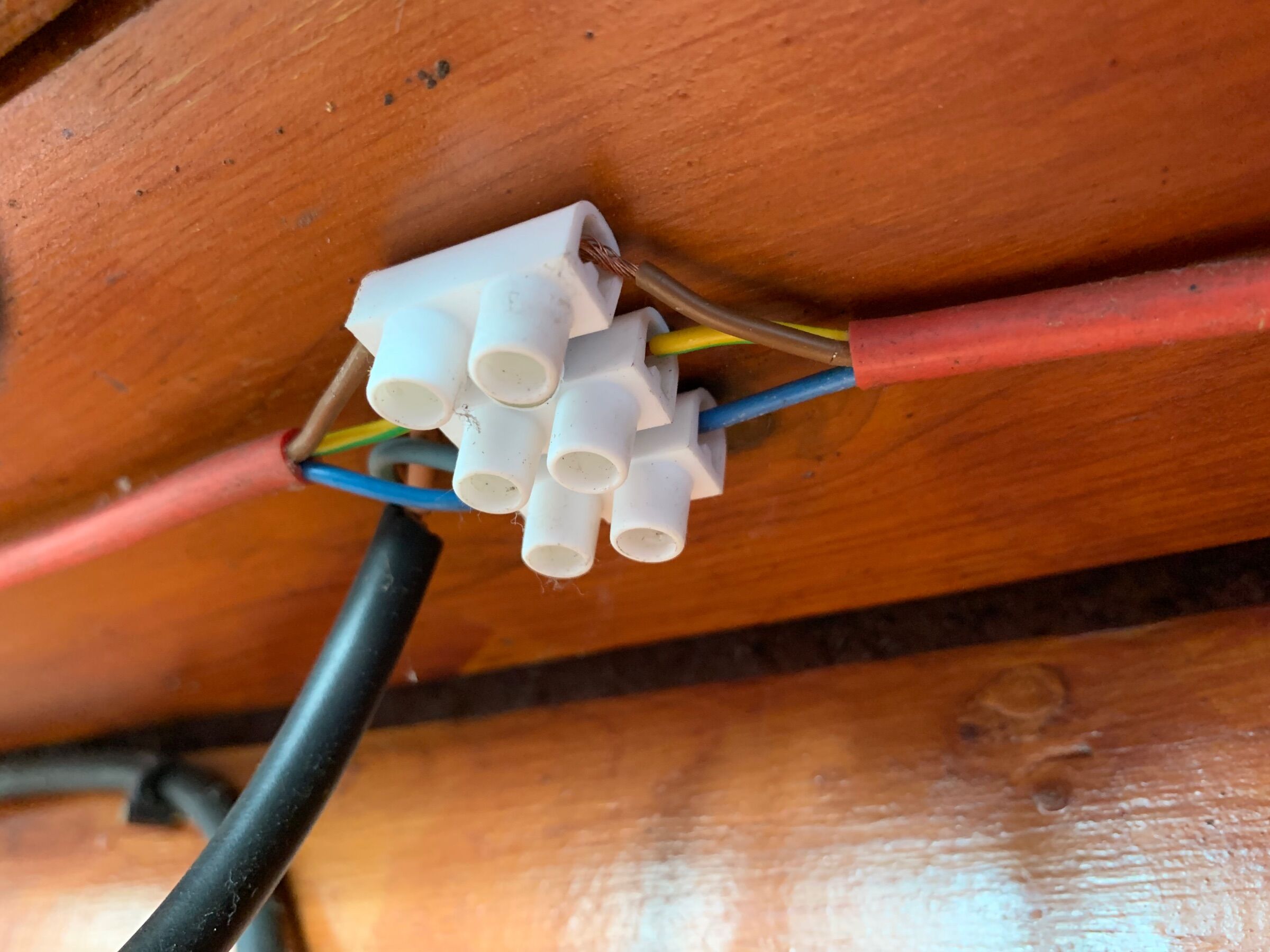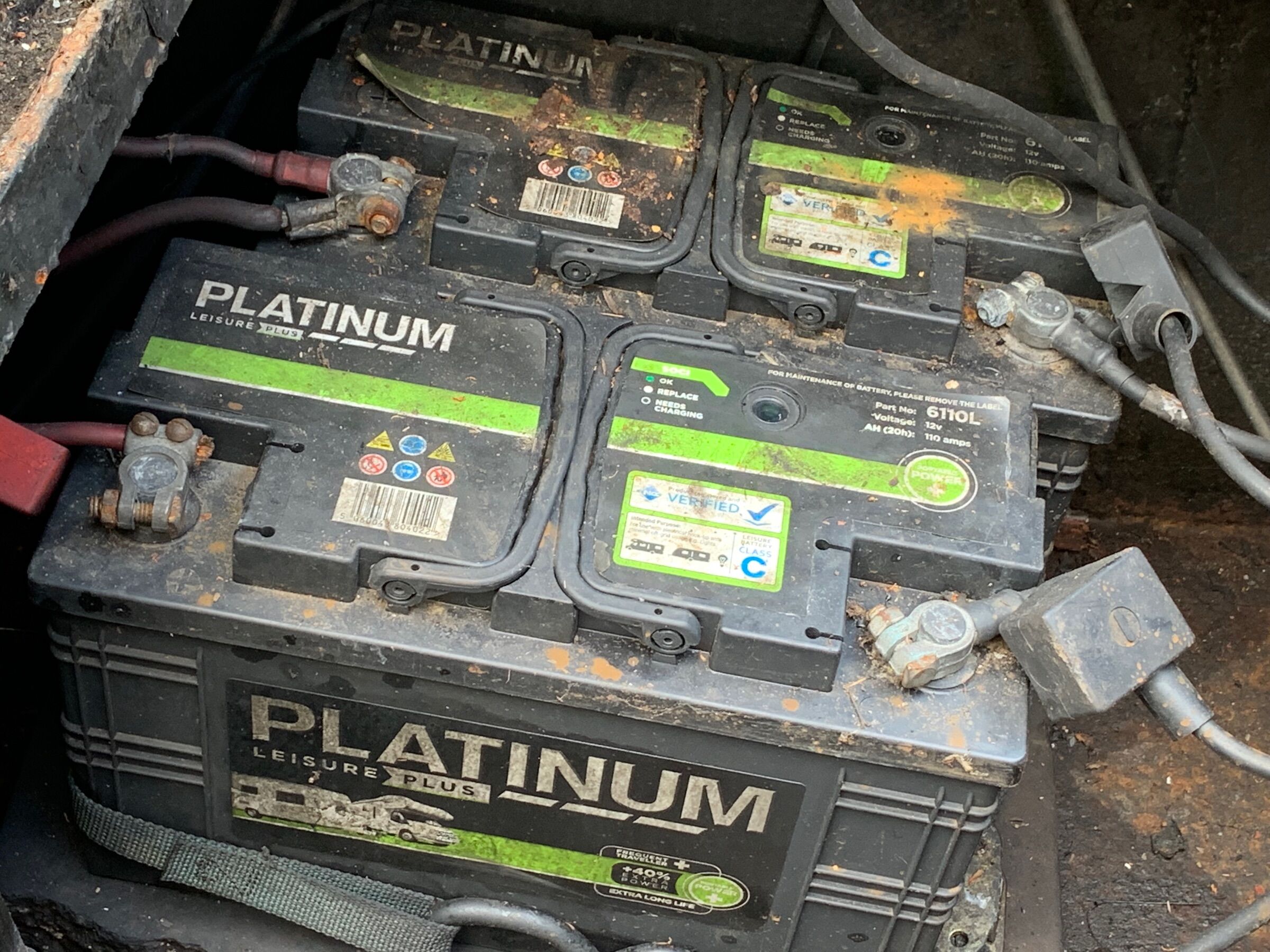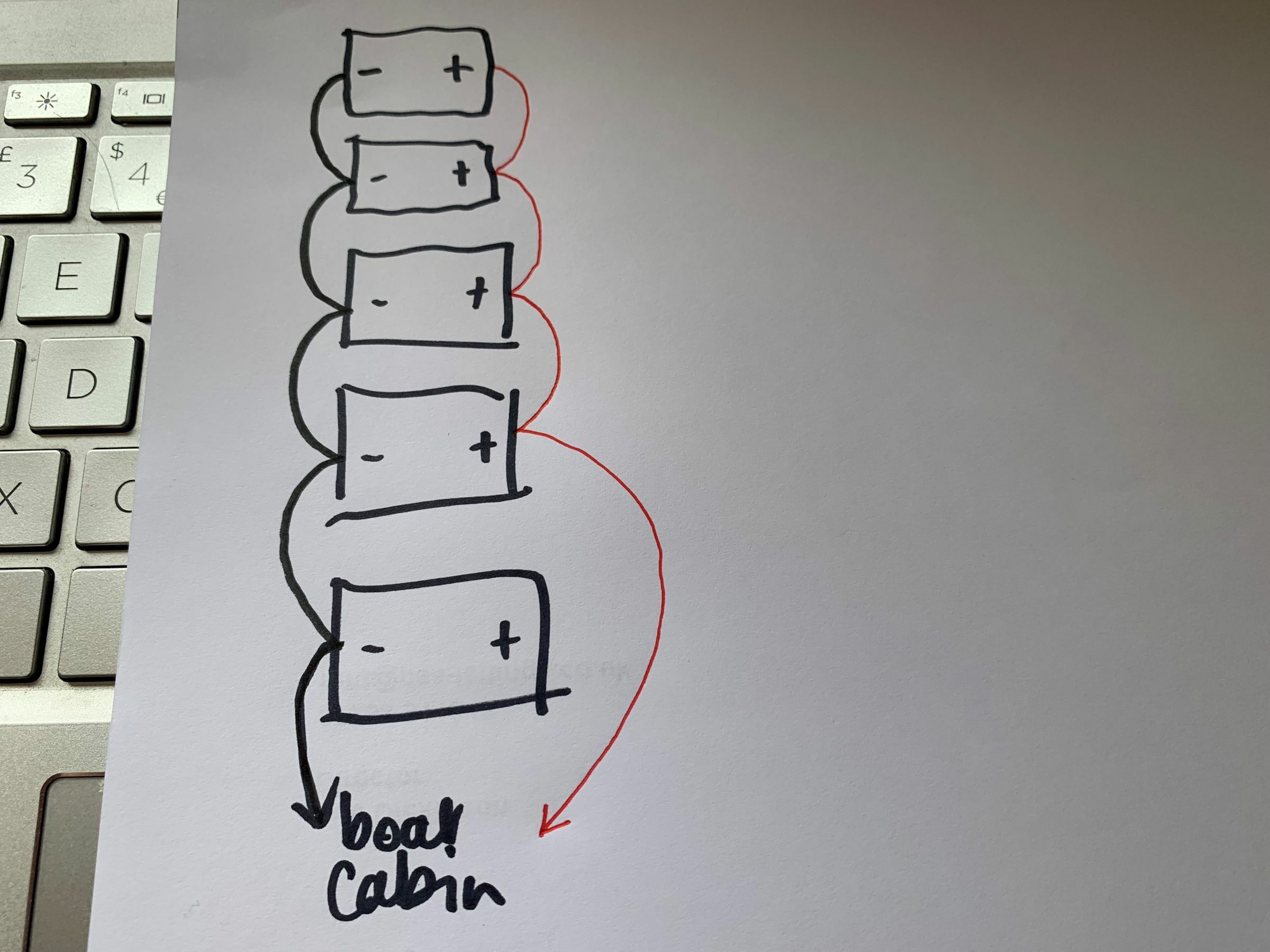

Boat afloat
-
Posts
54 -
Joined
-
Last visited
Content Type
Profiles
Forums
Events
Gallery
Blogs
Store
Posts posted by Boat afloat
-
-
2 minutes ago, Chris John said:
Many you can moor up in fields with no charge (just before Wallingford bridge for example.
stupid question alert but how would you know when you stop? Is it just a matter of stopping and seeing if you get told to bugger off?presumably those farmers who wish to charge will put signs up?
-
Thanks all - this is super helpful stuff.
We will be travelling from the Brentford end and then ultimately onto the Oxford via Isis Lock. It’s the earliest bit of the trip that makes us most nervous, because we have some knowledge of the river from Oxford to Dukes Cut so know what we could potentially do.
As for the question around paying to moor, we are prepared to do that if 1) we have to realistically, and 2) it’s advantageous ie much safer etc
-
Thanks for these replies - it’s not what we wanted to hear but sounds broadly in line with what we thought it might be like.
we hoped there would be more towpath spots though where we could just tie up but that’s sounding challenging…
3 minutes ago, Chris John said:Plenty of Moorings at Richmond, Windsor, Shepperton, Henley, Goring, Abingdon and more than enough past Osney as most cruisers can’t get under the bridge. You can also moor at many rural places such as fields etc. If leaving the boat I’d phone a few lock keepers as many have mooring available or leave it at a marina. You may/will have to pay at many of these places.
As for anchoring in a river overnight , Hmm not sure I’d advise of that. You need to display an anchor light if you do and you may still fall foul of the EAThanks for that!!!!
when you say plenty of moorings at those locations like Richmond are they mooring spots on the towpath you mean? Are they typically 24 hours though or can be much longer?
-
Hi there
we are planning to cruise the River Thames from Brentford to Dukes Cut but are struggling to get any real life info on mooring on the river.
During the cruise there will be periods where we need to leave the boat for a number of days and then return to it to continue the cruise.
What is the reality of doing a journey like this? Are mooring spots hard to find? Are there areas where leaving the boat for say a week is possible and again easy to find?
all tips gratefully received!!!
-
50 minutes ago, Tony Brooks said:
Personally I wold see if the cables have enough slack to use a proper mains junction box so it is less likely to get confused with 12V. Even a 5 amp junction box would be better than that chockblock
i can see two areas where I can create slack without compromising anything so I’ll do that for sure. -
4 minutes ago, Ronaldo47 said:
You can get lidded plastic boxes designed to take those insulated terminal blocks from electical suppliers and, I think, Screwfix. The original type, which featured on Dragons Den, was called CHOCBOX , but now that the patent has expired, other brands are avsilable. This sort of box has lugs to secure the terminal block and cable clamps to secure the cables so they don't get pulled out so easily.
The original insulated terminal strips were called chocolate blocks by engineers as they were made from brown plastic and resembled the large cubic blocks of the old Cadbury's chololate bars. Cadbury doesn't seem to make chocolate like that any more, and the strips are now usually white or clear, but the name has stuck.
Perfect thanks!!! This is the only connection of its type I can see on the boat…I’ve just gone and traced things but I will definitely replace this one!!!
-
11 minutes ago, Slow and Steady said:
Definitely a weak point as the brown wire has pulled out!
It wasn’t in the tightest but hadn’t come out. Duly sorted now and nice and tight

-
-
OK. A bit of further inspection done. 3 of the 4 batteries have green spots in the inspection eyes, one is black. Could a single battery failure be the issue, presumably not? Wondering whether to isolate that one (along with the one already isolated).
I did bring a spare (small ish) battery I had in the garage at home just in case it might be useful. It’s in the car now…
mo’s engine still running and volts now 13.4 and rising so charging is happening at least. -
17 minutes ago, Tony Brooks said:
As I am sure you have been told before in this thread your batteries are almost certainly knackered. They either are sulphated to hell and only have a few Ah capacity now or hey have internal shorts so they never charge and when any charge manages to get in it promptly discharges through the shorts.
You may also have undersized inverter cables and/or bad connections. Ditto the battery leads, including clamps, to the domestic distribution board and negative bus bar.
OK. I am prepared for it being the batteries so I’m not in denial, just trying to look at the other options before having to sort out a load of new ones only to find it is something else.Engine running 10 mins now and they are back up to 13.
inspection eye still looks green…)
ps solar now sorted, I found a loose connection!
-
Right. Hoover worked for a minute and then cut out.
fuse was between the controller and the battery packs.
woth engine running (apparently the hoovering is the main priority I am told) the batteries are testing at 12.3v…WHAT???
alternator belt looks tight and alternator looks fairly new.
-
OK - at the boat now.
solar was showing 12.7V and batteries tested 12.7v
solar disconnected and batteries tested at 12.79v
turned inverter on and they dropped to 12.78v
downside is solar is now not wanting to work but maybe it takes a little time after removing the fuse to work again?
OH is now about to hoover so let’s see what happens!!
-
Thanks. That does make sense and was what I was getting at despite my slightly clumsy phrasing.
-
Thanks Tony, that’s a good point on the solar. Sorry for all the questions…
- the electrics are turned totally off but the solar is on. Will the solar still charge the batteries even though the electrics are off? I know you don’t know how my boat is wired up but usually the solar would continue to charge even with electrics off?
- I should in theory come back to healthy battery levels given the above (sunny weather and no usage drain for the past week)?
- the volt meter in the boat (the one that gives a mis-leading reading I think) will be taking an average of all 4/5 batteries will it?
- given all the leisure’s are linked when I stick the multimeter on one battery am I effectively getting an average of them all, or genuinely getting that particular batteries reading? They were all within very tight tolerances when I last checked, hence me wondering.
- your point about solar voltage, so if I understand the point it’s that whilst the solar is charging any reading taken at the +ve and -ve terminals of an individual battery isn’t the voltage of that battery but a function of what the solar is chucking in…a bit like doing it whilst the engine is running…that makes sense now you point it out.Thanks
-
We hope to be with the boat today so can start to test things out.
first things first I’ll see what the resting voltage is of the batteries because the boat has been sitting for a week.
Will my multi meter give me an accurate charging voltage whilst running - any reason it won’t work whilst the batteries are physically being charged by the alternator?
-
15 hours ago, MtB said:
One of the BEST ways to learn is to explain a subject to someone else. Try it on here. Give the board a two-sentence explanation of what a volt is, and what an amp is, according to your understanding so far.
Not a trick question, if you have a bash if there is anything wrong we can point you in the right direction.
OK - here goes then!!voltage is a measure of pressure in an electrical system whereas amps is a measure of the amount of energy flowing through the system?
I need watts to feed the electrical items such as the router and make them work.volts x amps = watts.
so, if the voltage drops I’ve got a system that isn’t powerful enough to push stored energy around the system, plus low wattage due to the above calculation? Is that (anything like) right..?
-
5 minutes ago, Tony Brooks said:
1. I suggested it might be a cell or cells shorting internally but many years of experience tells me statements about what a boater thinks without evidence is pretty much worthless - especially when they think they might be having to find several hundred pounds for new batteries. You need to measure the charging voltage at about 1200 rpm after several hours cruising before we can do much more diagnosis.
2. The power audit. List every electrical item you have on board and how many amps it draws - you may have to convert from Watts. Amps = Watts /12V or 24V
Then beside each on list how long they will be in use per 24 hour period. Use a worst case scenario and include the amps the inverter uses just to work itself.
Multiply amps by time for each one and then total the results. You need a battery capacity of at least twice that.
Also remember you have to put that much plus another 1/3 to 1/2 again to get the batteries back to where they were before you discharged them.
You can NOT use the alternators rated output - use about half over three to four hours and any longer it keeps reducing.
You can NOT use the solar panels rated output. The most you will get is perhaps half across noon, less but risisng before and less but falling after noon.
Thanks Tony that is super helpful. I'll get onto the audit but I do think we are super low on usage (not running the fridge, no TV, running battery operated lighting etc.
Our inverter does look pretty basic though so I am eying that up suspiciously.
Presumably if I simply turn off all electrics to the boat overnight and see what has happened to the batteries overnight that should give us a solid idea of their resting health?
I am going to get Amps and Volts straight in my head on this too...drill...drill...drill...
-
11 minutes ago, Tracy D'arth said:
So how much current do you think your inverter uses in a day doing "not much"? You will be surprised if you actually bother to measure it.
It's an interesting point. My gut reaction would be to say for 90% of the time it's running in conjunction with the engine but thinking about it we haven't turned it off at night. That's something to definitely start doing actually because we have battery operated lighting for the evening.
I still think 'something' is going on whether it's in excessive draw somewhere, poor recharging or tired batteries.
an energy audit is to systematically test the batteries voltage with certain usage behaviour is it and see what's happening to the juice?
-
1 hour ago, Richard10002 said:
How are you measuring this. You need to do it with a meter at the batteries, or a specialist battery monitor, e.g. NASA BM1, Victron BMV712, etc.
You seem to be saying that the positive terminal is bare? Is there a wire connected to the positive terminal of this battery? If so where does it go? A photo of your batteries might help.
Yes, to be fair the 13 point something volts reading is from the digital meter in the boat, which I think is pessimistic. I'll get a proper reading from the batteries themselves when running - good plan!!
Yes, the positive terminal of the 5th battery is bare. I've attached a picture of what I am trying to describe. I'm not with the boat to take pics unfortunately.
In terms of other points:
- the router is a 240v jobbie running through the inverter yes.
- when I say very little else running I really mean it. Unless it's something hidden in the boat, or the inverter is just drawing huge power I can't see what else is doing it.
- regards my comment about the batteries settling at 12.6v resting charge after a cruise that should be fine shouldn't it? Should I be expecting much more than that?
- the solar is set to cut off at 14.5V IIRC.
55 minutes ago, Alan de Enfield said:I use this as an analogy.
You have a 100Ah battery this is the amount of energy it can store.
You have a 5 litre bucket, this is the amount of water it can hold.
If you put a couple of inches of mud in the bottom of the bucket it remains 'a 5 litre bucket' but it is now only capable of holding 4.5 litre.
That's a great analogy - I'll remember that one.
-
1 hour ago, MtB said:
As Nick pointed out, this is the root problem. It should be reading 14.4v or even more.
Whatever battery or batteries the voltmeter is connected to, it/they are not getting charged properly. Fix this fault first or any new batteries you buy will go the same way in a few weeks.
Top reasons for the charging voltage being too low are:
1) Vee belt too loose
2) Poor electrical connection (or connections) in the charging circuit
3) Diode failed in alternator
4) High power drain on the batts exceeding the charging input.
Edit to add:
Oops misread the bit I quoted! 12.6v is just about ok after cruising. But what is the voltage during cruising? Needs to be 14.4 or higher.
Thanks for all the replies so far.
Up until a week or so ago the boat was on a shoreline. Since then the boat has been moving.
During cruising I think the voltage rises to the 13's but not the 14's. We are back at the boat again in a few days so I can check, BUT even if the boat is only charging in the 13's surely we could expect the batteries to hold out longer than they are...they seem to be draining even under super light use (router plugged in and not much else).
I agree that checking the charging system seems to be the thing here...
Regards the previous question about what the 'weak' battery is connected to the positive connector isn't connected to the other batteries, just the negative so it looks like that battery has been taken out of the system entirely.
Question: When batteries are connected in the way they are on a boat if one fails is it usual to have them all go?
-
3 minutes ago, Thames Bhaji said:
You get what you pay for, and anything that thin probably won’t make much difference. The stuff I used was along the lines of the product below, and you can see a few variations on the ASAP site. It really wants to be at least an inch thick and quite heavy.
thanks for that. Yeah that’s quite a bit more expensive than the stuff I used but if it works then it’s worth a go.did you notice much difference when you used something similar and did you deem it a value for money job?
-
 1
1
-
-
We’re experiencing a little annoyance on our boat in that by evening the leisure batteries appear to be tired.
we have 5 leisure’s plus 2 solar panels but by 10pm the laptop and router will quietly retire for the evening.
there is a little voltmeter in the boat which always seems to read pessimistically. After cruising it will read 12.6 and slowly drain to 11.5 at which point the 12v sockets stop working.
some points then:
- everything seems to be charging when the engine is running
- the solar has been reset and tends to run at 12.6 - 13.4 so seems to be doing it’s bit…?
- if I stick a multimeter on the leisure batteries individually after running I get 12.6-13v each APART from the one closest to the cabin which always says 11.6 regardless of running
- the weak battery is only connected to the other 4 via the negative terminal (?)
- if I disconnect the negative terminal of the weak battery and therefore presumably take it out of play (?) nothing seems to change
- our inverter is a small one but does that matter because we aren’t power hungry?
I’ve been through the boat to turn everything off that could be draining things but wonder what it could be? My focus has been on the weak battery and the inverter but maybe I’m missing something? The fact the batteries themselves seem to be at healthy voltages is foxing me a little…
anyway, I thought I’d post up for some practical help and assistance because I’m sure there’s knowledge out there which can help.
cheers
-
 1
1
-
-
I’ve used the search function but couldn’t see any discussion around sound deadening options for engine boards.
we have an old BMC Tempest engine and I’d like to find easily implementable (and cheap) ways of reducing noise on the stern for more comfortable cruising.
im going to perform an oil change, because a clean engine is a happy one but have also been considering noise reduction pads for the underside of the (wooden) engine/stern boards. Has anyone tried this sort of thing with good results or indeed tried anything else that worked?
Someone has mentioned hospital silencers but that seems like a bigger job for another day, and at considerable cost. I’d be happy with something I can install next week, on my own without having to warn the bank manager!!below is the stuff I have used in automotive applications in the past.
cheers

-
Anyway I went past the L&L near Rishton yesterday and saw the first boat in that area for ages! Maybe they have opened it?





Mooring on River Thames - reality?
in Moorings & Marinas
Posted
Geez!!!!!